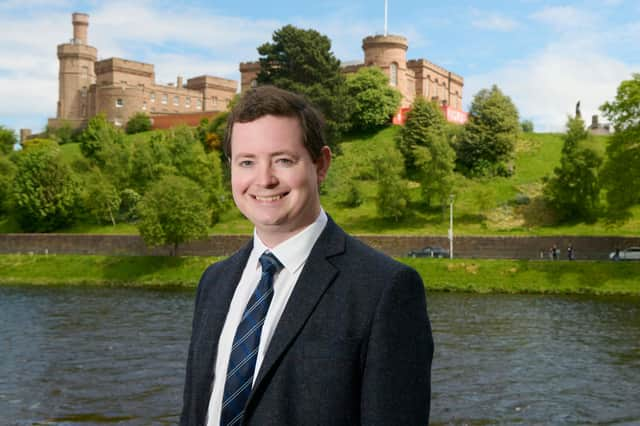Careful estate planning will look after your loved ones and bring you peace of mind - Magnus Mackay


It’s one of the most effective ways of protecting your loved ones in future, and nothing could be more important than that.
Many believe that simply being married is enough to protect your partner’s inheritance and that your assets will pass to them automatically on your death as a result. While this will be true for some people, for many others it will not be.
Advertisement
Hide AdAdvertisement
Hide AdFor those with larger, more complex estates, particularly those with multiple homes, farms or valuable business interests, the absence of a Will means the spouse only inherits so much before the remainder of the estate passes to children, or if there are no children, more distant relatives.
These relatives could therefore end up inheriting a large part of the estate by default. If that’s not bad enough, an Inheritance Tax (IHT) liability could arise, which could have been avoided completely had there been a Will.
The situation is even more uncertain for unmarried couples. In the absence of a Will, a surviving partner is entitled to nothing on the death of their partner. A court may be asked to make an award to the surviving partner, but this would mean going through the cost and anxiety of a court action, when the solution could otherwise have been much more straightforward. This is why I would encourage couples to make sure each partner has a Will.
Wills are also essential for those in second marriages, or generally where there are children from a previous relationship to be protected. If a Will leaves everything outright to the second spouse, there is no guarantee that he or she will include all the children in their own Will. A carefully drafted Will can make it possible to ring-fence assets for those children.
Conversely, many people are unaware that where a person’s estate is subject to Scots law on their death, as will be the case for most people who die while resident in Scotland, biological and legally adopted children will have rights to a minimum share of their parent’s estate, regardless of the terms of a Will.
This can be particularly relevant for business owners who have a clear plan for the individuals intended to take over the business in future. Where the claims are not desirable, action can be taken in lifetime to minimise the children’s claims, or deal with them in advance so they do not get in the way of the overall plan.
Another misconception surrounds Powers of Attorney. Many believe that marriage provides a couple with the legal authority to manage each other’s assets in the event of temporary or permanent incapacity, but this is not the case.
A spouse has no technical authority, without a Power of Attorney or court order, to access a bank account in their partner’s sole name, should the account holder lose capacity. Similarly, if there is a desire to sell the house and one owner is incapable, if there is no Power of Attorney in place it might be necessary to go to court to ask for permission to sell the house. All of this can be avoided with a Power of Attorney.
Advertisement
Hide AdAdvertisement
Hide AdEstate planning is first and foremost about providing peace of mind. Taking good advice means you can take comfort from the knowledge that your wishes will be followed to the closest extent possible when the time comes. That will let you focus on more enjoyable pursuits, such as the inevitable new year health kick...
Magnus Mackay is a Partner with Wright, Johnston & Mackenzie LLP